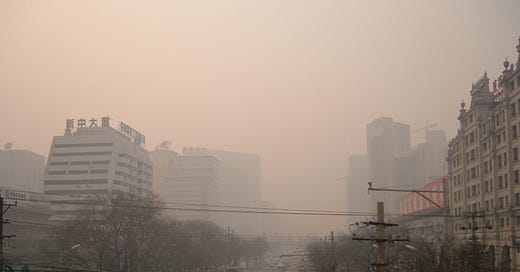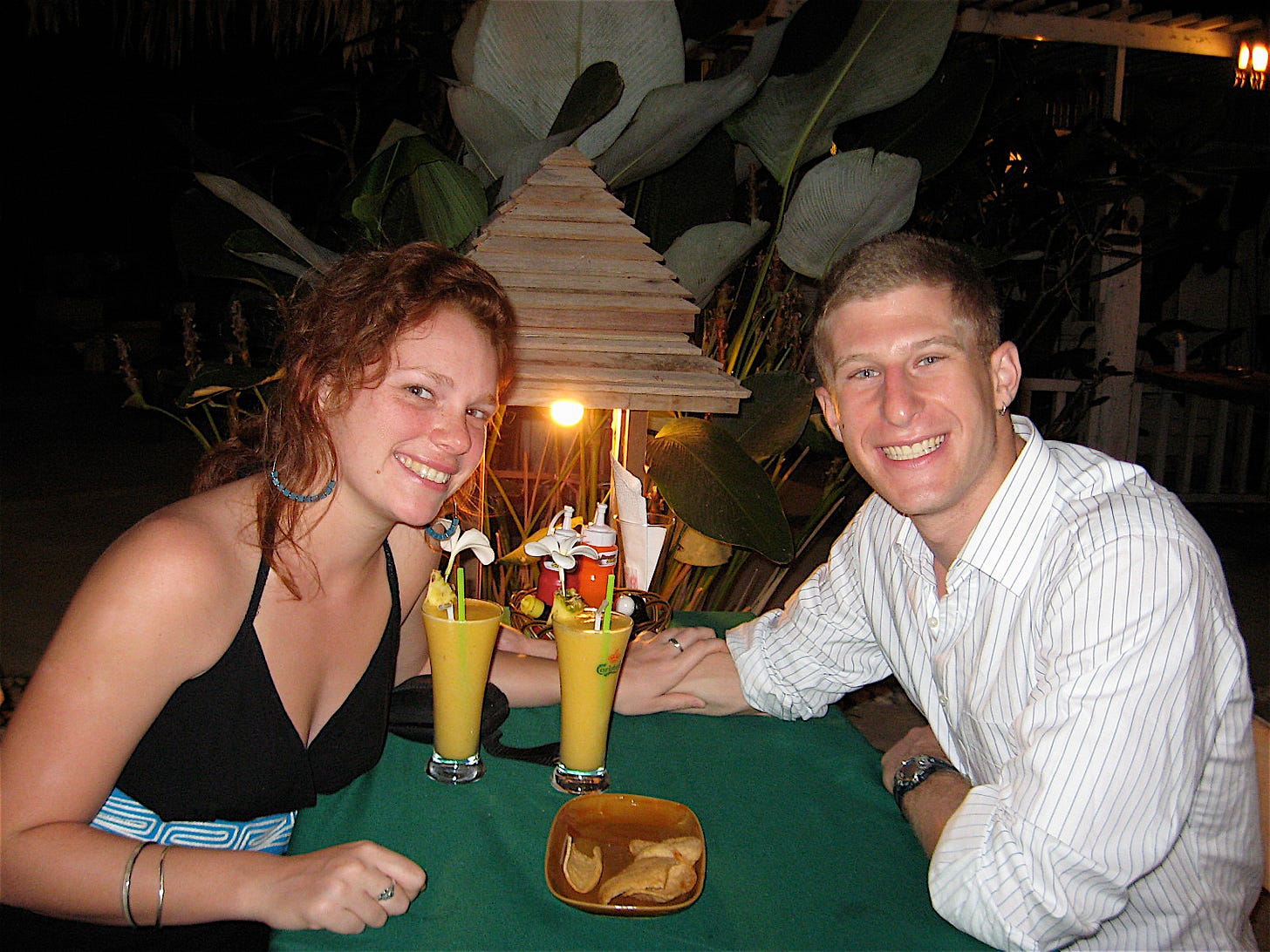How I Got to Here, Part 1: Graduations
I begin tracing the path of how I decide to write a book about about sustainability and finding your passion. This piece starts in Cleveland and ends in Beijing.
[Book Introduction, Part 1]
Graduation was approaching and I had a decision to make.
It wasn’t supposed to be this hard. My friends had ready-made answers: doctor, lawyer, teacher, baseball player, astronaut. The career aspiration I selected would be etched in history as part of the photocopied 1994 Mercer Elementary School fourth grade graduation pamphlet. It was a big deal to me.
With time running out, I stopped cogitating and opted for “help the World.” This answer was influenced by the Jewish teaching of Tikkun Olam–Hebrew for “repairing the world”–that was part of my Saturday school curriculum. Thirty years later, I can still picture that graduation handout with my flannel shirt and half-smiling face above those three words.
Memories stay with us for a reason; this one stuck because it captured my self-conception. I didn’t know how I’d help the World back then–just that I wanted to–but by late high school I’d zeroed in on politics and foreign policy. I clearly remember arguing over the hanging chads in Florida during AP US History as a junior in 2000, and watching in horror on 9/11 as the plane crashed into the second tower and the War on Terror began.
As a political science student at Yale University, I realized that the intellectual challenges of policy analysis played to my strengths. The world is messy, and there is never a single solution. The best we can do is analyze the facts and argue for a course of action based on a combination of strategic considerations, theoretical frameworks, and examples from similar situations in the past. The distillation and synthesis needed to do work came naturally to me, and I regularly cranked out several 5,000 word term papers a semester, losing myself in the work for hours at a time. I loved that politics are always moving forward. This allowed me to see the real-world outcomes of policy decisions I’d studied and debated in the classroom and over drinks. My future as a lawyer working on foreign policy in DC felt secure.
To prepare for this career, I decided to see more of the world than the inside of a seminar room, so I spent my junior year abroad in Australia. While the academics didn’t compare, my months exploring Southeast Asia between semesters were a revelation. It was a sensory overload: the food, the travel, the smells, the wars and killing fields I knew too little about, the languages I didn’t understand–everything. Travel was a different, but no less impactful, kind of education–I wanted more of it.
But where to go and what to study? As graduation approached in 2006, wars in the Middle East were a big focus – aren’t they always, sadly – but I wasn’t drawn to Arabic or the region. Put simply, I didn’t have the passion for Israel and the Middle East that I deemed necessary to succeed as yet another Jewish-American regional foreign policy expert. That left me with a clear choice: China. Mentors encouraged my interest in learning Chinese and exploring the country, so I enrolled in a summer language program at Middlebury and moved to Beijing on a tourist visa, where my friend’s family graciously hosted me for a few weeks while I found my bearings.
The years before the Olympics were heady times in Beijing. Thousands of young expatriates swarmed to the city to study Chinese, teach English, work in globally-minded businesses, or just be part of the next big thing. While many of the traditional hutongs across the city were destroyed and replaced with coffee shops, subway stations, shopping centers, and high rise apartment buildings, it was easy to wonder into alleyways with no other foreigners, where the locals carried their caged birds down the street to have a chat, a smoke, or play a game of mahjong with friends.
I spent weeks pedaling my one speed bike through these hutongs, practicing my limited Chinese skills on anyone who would talk to me, pointing at the food of other tables at small restaurants until I learned how to read the menu, and studying Chinese in the morning. I taught enough English in the evenings to live comfortably. Looking for an athletic challenge, I began training for a half Ironman, which exposed me to the environment in Beijing in a more visceral way. As I wrote in an email to friends in December 2006:
Training for a triathlon in Beijing is tough. The pollution is too bad to run outside, so I spend everyday in the gym. The coal burning power plants give the air an acrid, only-in-Beijing taste that seeps through the walls and into my apartment. I’ve taken to biking on the ring roads around the city to train. The air burns and I try not to ride on the smoggiest days. My bad sense of direction remains, and I get lost, but Beijing is generally a grid, and my Chinese skills are getting good enough to ask for basic directions home.
The pollution shaped my two years in Beijing. “Blue sky days”, which weren’t always totally clear, coincided with summits and key political events that shut down industries within a few hundred miles. On those days, I actually felt like myself. Other days, when the Siberian winds swept down and through the city, people in hutongs burned small black pucks of coal to stay warm, and the air turned so bad that I couldn’t see the buildings across the street from my window. I’d studied environmental science in high school, but climate change and the environment were abstract concepts in Ohio. Beijing was different.
After nine months in Beijing, I decided to escape the pollution and see more of the country, so I backpacked southwest to Myanmar, due east from Yunnan province to Hong Kong, and then northwest from Hong Kong to the land border with Russia and Mongolia in northern Xinjiang province. By then I was fluent enough to speak with cabbies–no, I don’t know why Bush decided to go to war; yes, China is a very beautiful country, etc.–and locals. Throughout the trip I tried to snap these experiences, the language, and my reading on Chinese history together into a coherent framework. This was an impossible undertaking given the enormity of China, sweep of its history, and my limited exposure, but I was young, naive, and having fun.
Two things jolted me upon my return to Beijing. The first was my old nemesis, the pollution. The second, and more important one, was the girl my roommate brought along on our trip to Ikea to furnish our apartment: Allie. Intelligent, kind, passionate, beautiful, Jewish. We were inseparable during our second year in China. The pollution and Allie were setting me on the trajectory to where I am today. Subconsciously, I wanted climate change and the reduction of pollution to be the puzzle I worked on, and I knew that Allie was for keeps.
But we’re still 15 years in the past. There are more steps to go on the path to this book.
[I’ll pick the story up three years later, in 2010, in Bangladesh in my next post]




